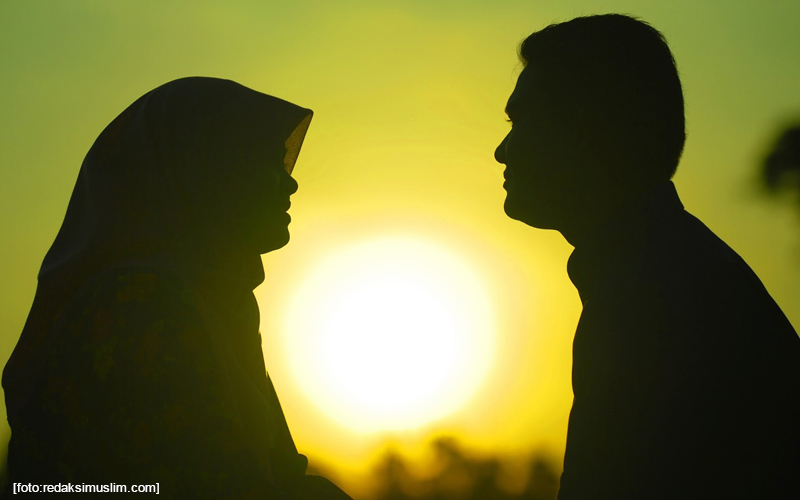Genetics counselor Lama Eldahdah spends most of her time thinking about reproductive probabilities, but when she sits down with Muslim patients who are battling infertility, the conversation rarely focuses on odds.
“Religious people say it’s God’s will, non-religious people say it’s statistics,” said Eldahdah, who works for Chicago’s Reproductive Genetics Institute.
“When you’re talking to Muslims, ‘Allah’ is every other word.”
As scientific advances create more choices for couples trying to build families, Muslims face religious teachings that rule out many options available to other couples.
By age 21, Dilnaz—she asked that her last name not be used, citing the cultural stigma around infertility—was still not pregnant after three years of marriage and two years of trying to get pregnant.
“Certain women are fine with not having kids, and other women can’t go through their life without having kids,” she said. “I am a school teacher. I’ve always been around kids and I really love kids.”
Pressure only grew at community gatherings on the weekends.
“People would ask, ‘What’s up? Why don’t you have kids? When are you getting kids?”‘ Dilnaz recalled. “It’s up to God,” she would answer, smiling on the outside as she was tearing apart on the inside.
Dilnaz sought out a fertility specialist, and everything was on the table—as long as it fit within the boundaries of Islamic law. “It was very important to us that we do it in the Islamically-correct way,” she said.
In 1980, just two years after the birth of Louise Brown, the world’s first test-tube baby, a Sunni sheikh issued Islam’s first fatwa, or religious edict, on in vitro fertilization. Assisted reproduction (artificial insemination and in vitro fertilization) was allowed, it said, but only with the husband and wife’s own materials. That meant donor sperm, donor eggs and surrogacy were out.
Over the past 30 years, the ruling has been consistently upheld across Sunni Islam. A 1999 fatwa by a top Shiite cleric effectively permitted donor technologies, but Yale University medical anthropologist Marcia Inhorn said the bias against technological intervention runs strong among many Muslims.
“Having a donor baby is considered to be the equivalent of having a bastard child,” she said. “Many parents would be worried about how their kids would be accepted.”
But taking donors out of the equation can severally limit a struggling couple’s chances of having a child.
“Many of our patients have a less than 1 percent chance of achieving pregnancy on their own,” Eldahdah said. The reply from her patients, however, is often, “That’s not zero. If Allah wants me to have a child, I’ll keep trying.”
Looking back, Dilnaz said she is grateful the Islamic rulings kept her from doing something she would later regret. One doctor offered to implant 10 fertilized eggs. If several resulted in pregnancy, he said, they could always do selective reduction—what others would call abortion.
“I didn’t want to do something that I was emotional about but wasn’t appropriate,” she said. “I knew that as a Muslim I couldn’t (abort them), but still, I got to a point where I was like, ‘I’ll take 10 children at one time,’ because I was so desperate to have a child.”
After six years of infertility treatment and no successful pregnancies, Dilnaz got a phone call from her husband’s cousin in Pakistan, who already had three sons with another on the way.
If his wife gave birth to another boy, the cousin offered to let Dilnaz and her husband adopt him. Adoption, after all, has a long and respected lineage within Islam. The Prophet Muhammad himself was orphaned and raised by an uncle, and he later adopted a son.
Dilnaz called about 20 lawyers before she finally found one who said it could be done.
“Shariah law doesn’t allow for adoption if there’s a possibility of a living parent,” said Judy Stigger, who coordinates a handful of adoptions from Muslim countries each year as director of international adoption at The Cradle, an adoption agency in Evanston, Ill.
Islamic law does, however, allow something closer to permanent foster care. The child must know who his or her parents are and retain their name.
“For infertility, informal adoptions are looked upon favorably because this is your blood,” said Najma Adam, a social work professor and therapist who is herself Muslim. Her parents, in fact, gave her sister to an aunt and uncle who couldn’t have children of their own.
“I know my parents did it because they really just felt compassion,” Adam said.
Six months after Dilnaz got the first phone call, she and her husband got another one. “Congratulations,” the cousin told them. “You have a baby.” The cousin’s family brought the child to the U.S. when he was six months old.
Yet even that religiously acceptable solution became complicated three years later, when Dilnaz became pregnant with a son of her own. Some elders asked if she would be returning the adoptive son.
“I just felt like a boulder hit me,” Dilnaz said. They asked, “Why aren’t you giving your first child away? Why isn’t he going back to Pakistan? You don’t need him anymore.”
Dilnaz didn’t argue with them, but instead trusted in her belief that how her choices on building a family are between her and God.
“I have a lot of faith in God, and I know this is what God wants for me,” she said. “There are so many things that happen in this world that I don’t understand…but ultimately, it’s not our responsibility to understand things as time goes on. Maybe I wasn’t ready to be a mother earlier in life. Maybe this is the time God thought was good for me.”
[separator type=”thin”]
This article by Annie Snider is featured from HuffPost Religion.




